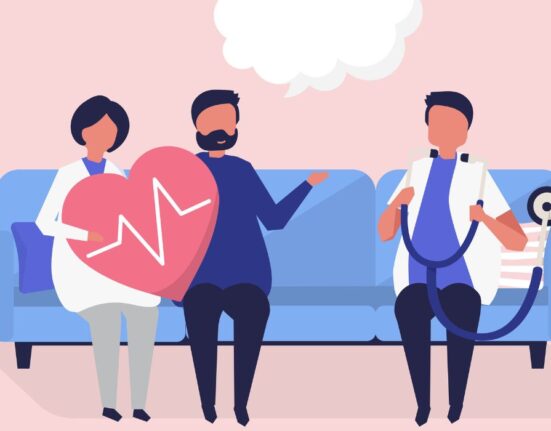Psychiatric negligence is especially harmful due to mental health patients being vulnerable. The psychological damage caused by medical professionals is concealed beneath the surface, in contrast to physical injuries that leave noticeable scars. This invisibility creates a dangerous blind spot in medical accountability systems. The psychiatric profession operates in a trust environment that patients desperately need to heal. When that trust is compromised through negligence, the damage extends far beyond the original mental health problem. Patients enter psychiatric care already susceptible to emotional pain, which renders them especially susceptible to further harm when practitioners fail to meet accepted standards of care.
How Trauma Differs When It Comes from Care Providers
Betrayal trauma happens when someone we count on to keep us safe and healthy is the one causing us the injury. This type of betrayal is more severe in psychiatric practice than it is for other claims of medical malpractice because when patients seek care, they have generally shared their greatest fears and thoughts with the professional. The psychological impact intensifies when patients realise the very professionals trained to understand mental suffering have become agents of additional trauma. This creates a devastating paradox: seeking help for psychological distress only to receive more of it from the supposed solution.
Understanding the Forms of Psychiatric Negligence
1. Clinical Errors with Lasting Consequences
Psychiatric negligence manifests in a variety of ways that can ruin patients’ lives:
- Misdiagnosis and inappropriate treatment: During the diagnostic process, patients receive wrong treatments while their genuine problems remain neglected.
- Medication errors and inadequate monitoring: When healthcare providers fail to properly observe patients’ responses and prescribe dangerous drug combinations, they create conditions that lead to lasting harm.
- Premature discharge from inpatient care: The practice of sending patients home before they reach full stability occurs because of bed scarcity and insurance-related difficulties.
- Coercive practices in treatment settings: Using restraints together with forced medication and seclusion as punishment instead of therapy.
2. Ethical Breaches in Therapeutic Relationships
When discussing psychiatric negligence, we are not just discussing clinical errors; psychiatric negligence often involves boundary violations which exploit the power balance between the provider and the patient. Therapists can truly cause greater harm through boundary violations by engaging in dual relationships, divulging personal information, or using therapy appointments to meet their emotional needs.
Psychological Impact of Being Failed by the System
1. Patients Often Blame Themselves
Patients who experience psychiatric negligence often blame themselves for the harm they cause. Patients blame themselves for a variety of reasons stemming from their vulnerable mental state when they sought help, differences with the healthcare provider, and the stigma surrounding the issue of mental health. Many patients rationalise their treatment as the treatment they deserve or that their issues are not real. This self-blame prohibits them from holding anyone accountable.
2. Long-Term Trauma Responses to Psychiatric Harm
The psychological aftermath of psychiatric negligence can manifest in severe and lasting ways:
- Hypervigilance and flashbacks: Patients may experience PTSD symptoms triggered by medical settings, white coats, or even the smell of hospitals
- Avoidance of future treatment: Patients avoid mental healthcare in the future, even when it might be critical for their well-being, to avoid the anticipated repeat of the trauma.
- Substance use for self-medication: In the absence of care, patients may turn to drugs or alcohol as their tacit resolution of the worsening course of their illness and the trauma associated with neglectful care.
- Worsening interpersonal relationships and lack of being connected: Mistrust occurs not only in the care received, but is also likely to affect personal relations in multiple directions
Systemic Issues That Extend Psychiatric Trauma
Power Imbalances and Institutional Silence
Mental health systems often close ranks when negligence occurs. Patients face enormous barriers when attempting to report harm: their credibility is questioned, their mental health history is used against them, and institutional loyalty protects problematic providers. The power differential between patients and providers becomes weaponised in these situations. Patients are told they’re “splitting” or “treatment-resistant” when they complain about care, while providers receive the benefit of the doubt from colleagues and licensing boards. Stigma and Disbelief Around Mental Health Complaints. Society’s persistent stigma around mental illness creates additional obstacles for patients seeking justice. Common misconceptions include:
- Mental health patients are unreliable narrators: Their perceptions are automatically questioned due to their psychiatric diagnoses
- Psychological harm isn’t “real” harm: Unlike physical injuries, emotional trauma from negligence is often minimised or dismissed
- Patients should be grateful for any care: The scarcity of mental health resources creates a false narrative that patients shouldn’t complain about standard treatment
Rebuilding Trust and Safety After Psychiatric Negligence
1. Psychological Recovery Following Institutional Abuse
Recovering from psychiatric malpractices requires particular strategies that develop resilience and recovery for the pre-existing mental health issue, as well as the trauma of the discriminatory harm inflicted. Trauma-informed care becomes vital as it’s important to understand that medical spaces can often re-traumatise patients. Recovery often involves new therapeutic relationships characterised by transparency, collaboration, and overt agreements regarding the prior harm. Patients also need providers who can acknowledge the realities of psychiatric malpractice while not defensively posturing about defending their profession.
2. The Importance of Validation and Justice
Being heard and believed plays a crucial role in recovery from psychiatric negligence. Whether through legal channels, licensing board complaints, or therapeutic processing, patients need their experiences validated by others who understand the gravity of what occurred. Justice doesn’t always mean financial compensation – sometimes it means having a provider acknowledge their mistake, seeing policy changes that prevent future harm, or simply having someone with authority confirm that what happened was wrong. If you or a loved one has experienced psychiatric negligence, contact our Atlanta firm today to explore your legal options and begin the journey toward healing.
Toward a Culture of Accountability in Mental Health
1. What Mental Health Systems Must Do Differently
To create safer protocols around psychiatric care, significant changes are required to the workings of mental health systems. The onus is on health care organisations to foster a commitment to safety rather than the organisation’s and provider’s interest, create systems of accountability, and develop a culture that empowers people to speak out when things go wrong. Training programs must address the unique vulnerabilities of psychiatric patients and teach providers about the lasting harm that negligence can cause. Supervision structures should include regular review of patient outcomes and complaint patterns.
2. Empowering Patients to Speak and Heal
Patients need accessible pathways to report problems and seek redress when harm occurs. This includes patient advocates within healthcare systems, clear complaint procedures, and support groups specifically for those who have experienced medical trauma. Legal literacy becomes important – patients should understand their rights and the standards of care they can expect. Professional organisations must create space for patients’ voices in policy development and quality improvement initiatives.













Leave feedback about this